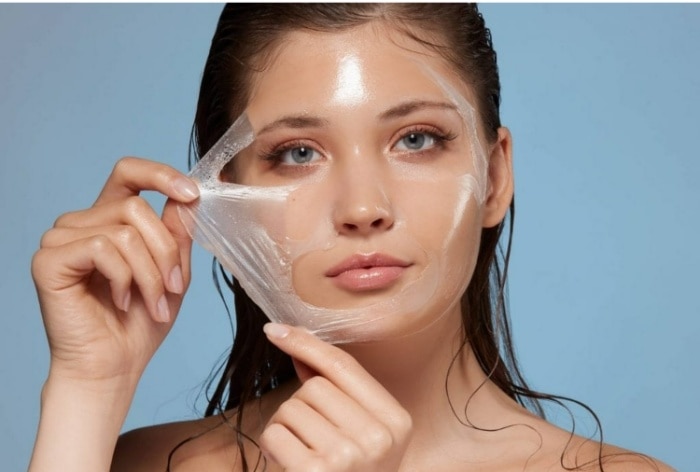Here we explore the pros and cons of chemical peels to help you decide if it’s the right choice for you.

A chemical peel or dermabrasion is a sought-after solution offered by dermatologists to address various skin concerns like acne scars, wrinkles, dark spots, and sun damage. The rising trend of chemical peels and DIY kits reflects the increasing preference for non-invasive methods to enhance skin appearance. Although these peels deliver remarkable complexion improvements, it’s crucial to acknowledge their potential drawbacks. We help you to understand the reasons behind the popularity of chemical peels and evaluate their safety and effectiveness.
How Does Chemical Peel Works?
Chemical peels are a form of skincare treatment that can enhance the overall look of your skin. The process involves the removal of the outermost layer of skin, resulting in a reduction in wrinkles, acne scars, and uneven pigmentation. Among various types, the glycolic acid peel is the most commonly used and least intense option. Additional options consist of the salicylic acid peel, trichloroacetic acid peel, and retinol peel. For those with sensitive skin, chemical peels for acne treatment offer a gentler approach compared to alternative peels.
Benefits
If you are curious about the advantages of chemical peels for treating acne or improving your skin tone, it is advisable to consult a dermatologist. By seeking proper guidance, you will not only receive valuable advice on effectively managing your acne or uneven skin tone but also determine if chemical peels are suitable for you. Following a discussion with a medical professional regarding your treatment objectives, they will be able to suggest the most appropriate type of chemical peel that aligns with your specific requirements and circumstances.
According to Dr. Rinky Kapoor, Consultant Dermatologist, Cosmetic Dermatologist & Dermato-Surgeon, The Esthetic Clinics ”Chemical peels eliminate the outermost layer of skin, unveiling a rejuvenated complexion with new skin cells. Following the chemical peel procedure, it is crucial to incorporate moisturizing lotion and sunblock into your skincare routine to safeguard your recently exposed skin against dryness and harmful UV rays. For those seeking a cost-effective alternative to cosmetic surgery, chemical peels offer an affordable option. The price of a chemical peel treatment will vary depending on factors such as location and the specific type of treatment.”
Types of Chemical Peels
Different types of chemical peels cater to various skin types. For instance, a light chemical peel effectively eliminates the outer layer of the skin, resulting in a more youthful appearance. It is suitable for addressing issues like pigmentation, dryness, acne, and fine wrinkles. On the other hand, a medium chemical peel targets deeper layers of the skin and is beneficial for managing wrinkles, age spots, and acne scars. Lastly, a deep chemical peel, also known as an intense chemical peel, removes all layers of the skin and is typically reserved as a final option for severe acne scarring when other treatments have proven ineffective.
Risks And Side Effects
The peel will cause your skin to react adversely with redness, swelling, or scabs, which may last up to a week after the treatment depending on the depth of the peel. The deeper the peel, the more likely you will experience some level of peeling or blistering on your face. Chemical peels can increase your risk of sunburn due to increased sensitivity and make you skin thin and sensitive to UV rays. These side effects are minor and will go away within a few days. Chemical peels should be safely performed by a skilled expert. Do not pay attention to any rumors regarding chemical peels. It is essential to speak to the doctor.

Don’t Miss Out on the Latest Updates.
Subscribe to Our Newsletter Today!

